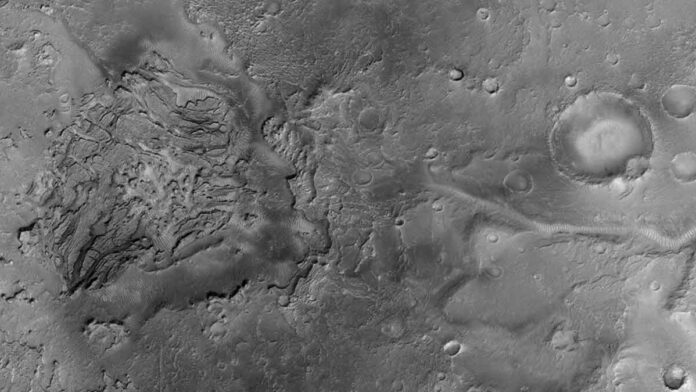The smooth northern lowlands and the pockmarked southern highlands are the two main features of Mars’ northern hemisphere. Arabia Terra is located on the border between these two regions. It is thought to contain some of the planet’s oldest rocks. These rocks are dating back more than 3.7 billion years.
Valleys and paleolakes are abound among the craters of the southern highlands. It reveals sedimentary and geomorphologic evidence of liquid water. But only a few paleolakes have been discovered in Arabia Terra.
Z. I. Dickeson and colleagues studied the Arabia Terra in detail using imagery and data from NASA’s Context Camera (CTX). They have also used data from the High Resolution Imaging Science Experiment (HiRISE) and Thermal Emission Imaging System (THEMIS).
The team used this imagery and data to create high-resolution maps and digital elevation models. They studied the geomorphology of the area. It allowed them to identify and describe seven new paleolakes. The findings have been published in the Journal of Geophysical Research: Planets.
The scientists studied paleolake features such as lake levels, drainage catchments, fans, and lake outlets. They discovered that the lake shapes were irregular when compared to the circular-shaped lakes found in craters in the southern highlands. Surface water filled the lakes and outlet streams drained them. It formed a cascading chain of lakes.
The researchers also discovered multiple past water levels within each of the paleolakes. It indicates that the lakes existed for extended periods of time during the Noachian period rather than forming and disappearing quickly.
The researchers concluded that liquid water must have been common in order to keep the lakes filled and draining. They propose that the potentially habitable environment in Mars’ distant past indicated by these paleolakes is an ideal location for future astrobiology and paleoclimate studies.

